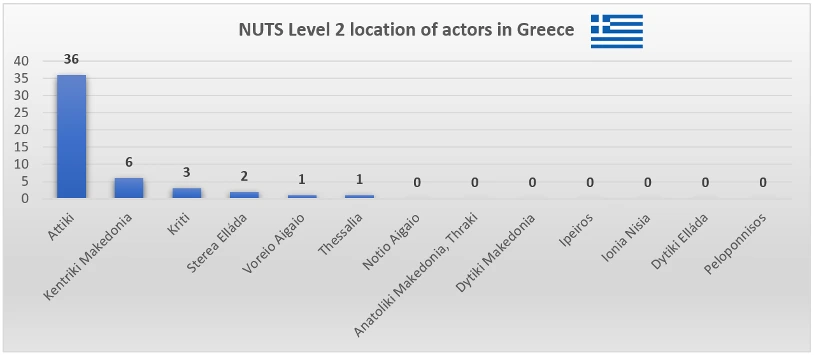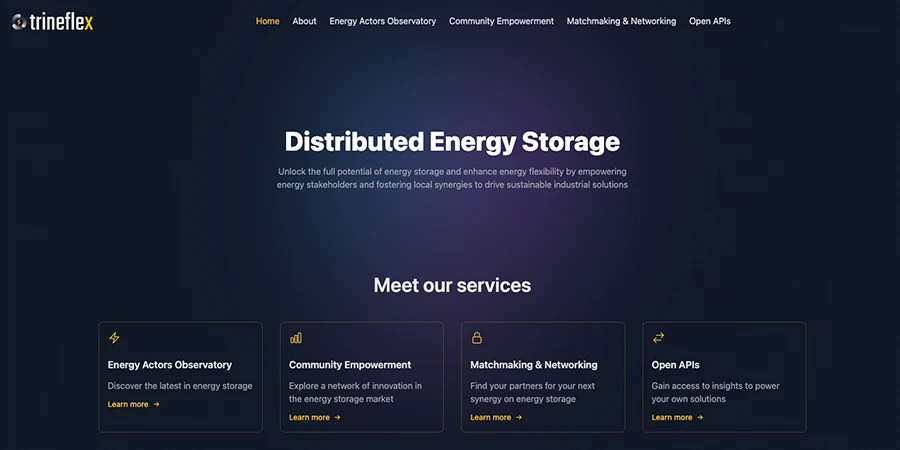· Sustainloop editorial team · regional-ecosystems · 4 min read
Research & Innovation
Insights from EU-funded projects under the Green Deal Research & Innovation Call

In 2020 the European Commission launched €1 billion funding under the Horizon 2020 framework with a view to mobilise the European research and innovation community towards the targets set under the European Green Deal. The European Green Deal (EGD) is Commission’s blueprint and roadmap to make Europe a climate-neutral continent by 2050, with a sustainable and resilient economy that leaves no one behind. Among other targets, the European Green Deal focuses on three key principles concerning the clean energy transition:
- ensuring a secure and affordable EU energy supply;
- developing a fully integrated, interconnected and digitalised EU energy market;
- prioritising energy efficiency, improving the energy performance of our buildings and developing a power sector based largely on renewable sources.
The European Green Deal Research & Innovation Call adopted an impact focussed approach supporting the development of concrete solutions, pilot applications and innovative products that are ready for further scale-up. Response to the call was overwhelming with 1550 proposals submitted, involving approximately 28000 applicants, from over 140 countries across the globe. Spain, Italy, and Greece were among the top 5 countries of applicants and participants. Spain and Italy had the first and second position respectively while Greece was fifth, showcasing the strong R&I ecosystems present in the countries. By performing an analysis on CORDIS data of 41 projects funded under the above topics we deduced that in 38 (93%) of them are participating a total of 292 actors from the three countries of interest. Specifically, there are 125 organizations from Spain (43%), 118 organizations established in Italy (40%) and 49 Greek organizations (17%). The total implementation costs involved with these 38 projects were estimated at €705.5M. Almost 25% of this was assigned to the participating Spanish, Italian and Greek organizations.
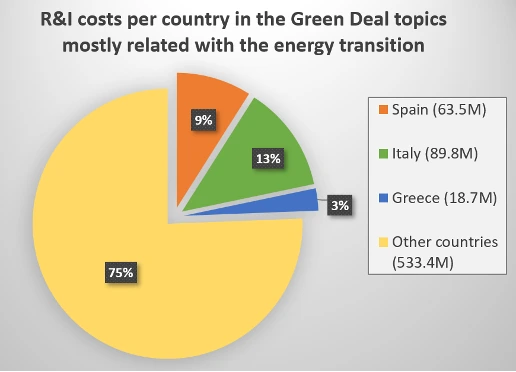
Further analysis of the available data reveals that in Spain, private-sector actors hold the largest share in R&I activities related to the energy transition, while together with research organizations they are constituting nearly two-thirds of the participating organizations. Private entities in Italy demonstrate even greater engagement, accounting for 43% of involvement in the country’s EGD R&I activities. Research organizations make up approximately a quarter of participants, while public bodies have a very limited presence. In contrast, Greece’s research organizations take the lead over private companies, with academia placing third. Moreover, there is a notable increase in public-body participation, reaching 12%.
The geographical dispersion of the Spanish R&I actors, beyond the expected high presence in Comunidad de Madrid, reveals strong R&I ecosystems in the east and north regions of the country. Τhe three regions (NUTS2 level) of Cataluña, Comunidad de Madrid, and Región de Murcia concentrate almost 60% of the organizations participating in EGD calls related to energy transition.
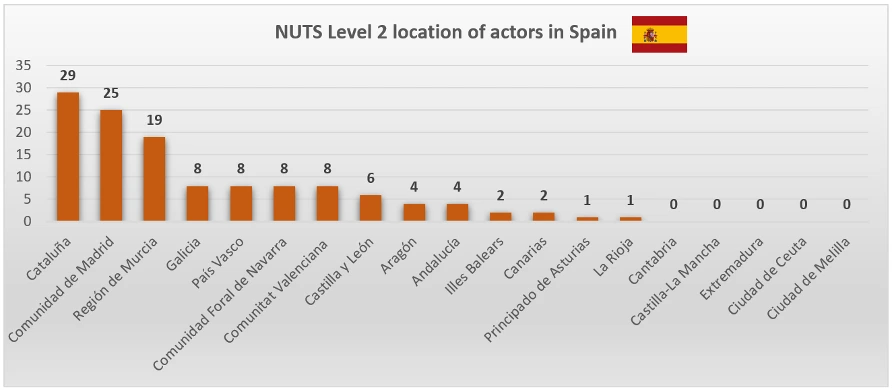
In Italy, the northern and more industrialized regions dominate the R&I ecosystem, accounting for nearly 60% of the total activity with a significant presence of private companies. The region of Lazio, situated in central Italy, holds the highest number of organizations compared to other NUTS Level 2 regions in the country. The overall geographic distribution of actors reveals the limited participation of the southern regions in these R&I activities. The three frontrunner regions in terms of established stakeholders actively engaged in energy transition innovation are Lazio, Liguria, and Lombardia.
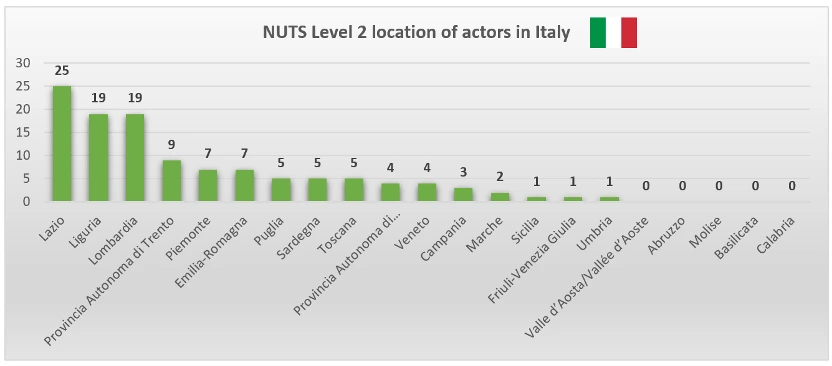
In the case of Greece, it is evident that most of the R&I actors (73%) are concentrated in the region of Attiki, which is the country’s hub of economic and research activity and the location of major corporate and public entities. Trailing behind are Kentriki Makedonia and Kriti, which hold notable research centres and higher education institutions.
